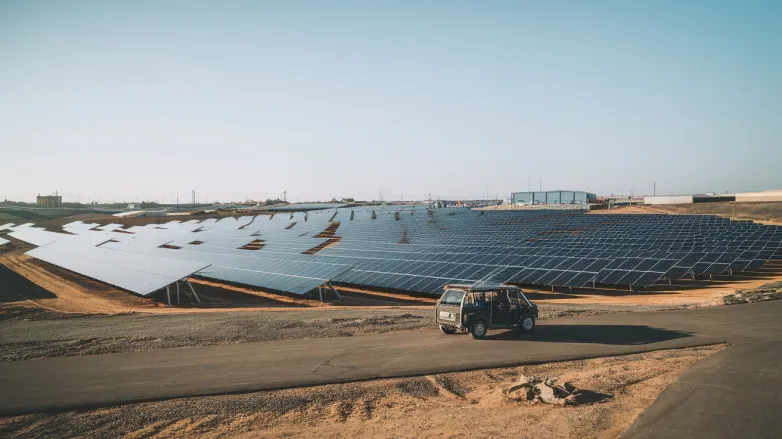RWE Unveils Floating Solar Pilot on Saxony Lake
- RWE AG dives into innovation, launching a groundbreaking floating solar pilot on Saxony's Mortkasee, transforming former mines into renewable energy hubs!

RWE AG has launched a pilot floating solar project on the Mortkasee artificial lake in Lohsa, Saxony, in collaboration with the Fraunhofer Institute for Solar Energy Systems and Brandenburg University of Technology. The PV2Float research initiative consists of three systems, each with a capacity of about 30 kW, which will be evaluated over a three-year period. The project is supported by the German Federal Ministry of Economic Affairs and Climate Action.
The Mortkasee lake, formed from the flooding of the Werminghoff opencast lignite mine, is now positioned as a significant research site for floating solar technology in Germany. Mayor Thomas Leberecht highlighted the technology's potential to improve solar module efficiency through cooler water and convert disused mine sites into renewable energy sources. RWE also has experience with floating photovoltaic systems in the Netherlands.
What are the implications of RWE's floating solar project for renewable energy development?
- Innovation in Solar Technology: RWE's floating solar project represents a significant step forward in solar energy innovation. By combining solar photovoltaic technology with water surfaces, it may pave the way for more efficient solar energy generation, leveraging cooler temperatures for enhanced energy output.
- Utilization of Previously Degraded Land: The project epitomizes the concept of repurposing previously degraded or unused land, such as flooded mining sites, for renewable energy generation. This approach can be a model for other regions with similar challenges, facilitating a transition to a green economy while addressing environmental concerns.
- Scalability of Floating Solar: The pilot project serves as a testbed for floating solar technology, potentially demonstrating that it can be scaled up to larger installations. If successful, this could lead to widespread adoption across Germany and beyond, particularly in areas with limited land availability for traditional solar farms.
- Collaboration with Research Institutions: The partnership with the Fraunhofer Institute for Solar Energy Systems and Brandenburg University of Technology highlights the importance of collaboration between industry and academia in advancing renewable technologies. This synergy can accelerate innovation and practical applications of research findings in real-world settings.
- Regulatory and Policy Implications: The involvement of the German Federal Ministry of Economic Affairs and Climate Action indicates governmental support and recognition of floating solar as a viable renewable energy solution. This could inspire policy changes that facilitate the growth of floating solar projects, including subsidies, funding for research, or streamlined permitting processes.
- Environmental Benefits: Floating solar installations can potentially reduce evaporation from water bodies, thus conserving water resources—an important factor in the context of climate change and increasing water scarcity. Additionally, they can help preserve aquatic ecosystems by reducing algae growth through shaded areas.
- Economic Opportunities: As floating solar technology matures, it could create new job opportunities in design, engineering, installation, and maintenance of floating solar systems. This development can contribute positively to local economies, especially in areas transitioning away from fossil fuels.
- Energy Security and Diversification: By expanding the portfolio of renewable energy sources, floating solar projects can bolster energy security in Germany. They present an opportunity to diversify the energy mix and reduce dependency on traditional fossil fuels, thus contributing to the country's energy transition goals.
- Public Perception and Community Engagement: Successful implementation of the project may positively affect public perception of renewable energy. Engaging local communities in the project, sharing benefits such as energy cost reductions or community funding initiatives, can further enhance societal support for renewable technologies.
- Global Leadership in Renewable Solutions: RWE’s initiative positions Germany as a potential leader in floating solar technology. As other countries look to deploy renewable energy solutions, successful projects like this could influence international collaborations and investments in floating solar initiatives globally.
Also read

